Only one of these statements is true. Which is it?
A. All of the below
B. None of the below
C. One of the above
D. All of the above
E. None of the above
F. None of the above
Only one of these statements is true. Which is it?
A. All of the below
B. None of the below
C. One of the above
D. All of the above
E. None of the above
F. None of the above

More wisdom from Poor Richard’s Almanack:
And “Cut the Wings of your Hens and Hopes, lest they lead you a weary Dance after them.”
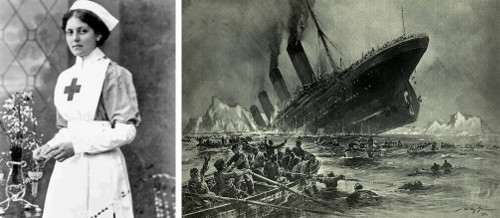
Stewardess Violet Jessop was both cursed and blessed — during the 1910s she met disaster on all three of the White Star Line’s Olympic class of gigantic ocean liners, but she managed to escape each time.
In this episode of the Futility Closet podcast we’ll accompany Violet on her three ill-fated voyages, including the famous sinkings of the Titanic and the Britannic, and learn the importance of toothbrushes in ocean disasters.
We’ll also play with the International Date Line and puzzle over the identity of Salvador Dalí’s brother.
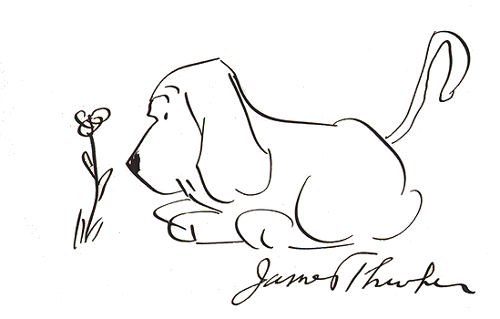
When James Thurber tried to improve his drawings, E.B. White told him, “Don’t do that. If you ever got good you’d be mediocre.”
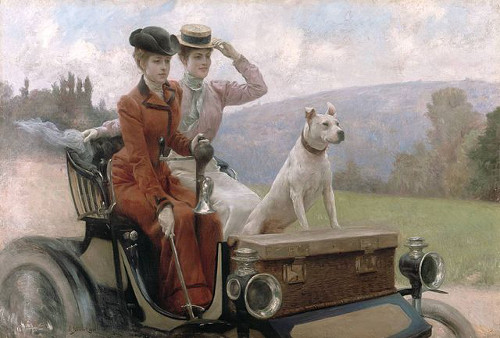
A conundrum by French puzzle maven Pierre Berloquin:
Caroline leaves town driving at a constant speed. After some time she passes a milestone displaying a two-digit number. An hour later she passes a milestone displaying the same two digits but in reverse order. In another hour she passes a third milestone with the same two digits (in some order) separated by a zero.
What is the speed of Caroline’s car?

In 1914, Russian physicist Boris Weinberg proposed an electromagnetic vacuum train that could move an individual passenger from New York to San Francisco in half a day. Reasoning that air resistance and friction are the greatest enemies to speed, Weinberg envisioned using electromagnets to suspend a car in a tube from which the air had been partially exhausted. An individual passenger would lie prone in a 300-pound iron cylinder drawn along by a series of solenoids. New passengers could be introduced into the system through an airlock at a rate as high as 12 per minute, “the whole proceeding being not unlike that of feeding cartridges from a belt or clip to a machine gun.”
Weinberg estimated a maximum speed of 500 mph. “Think what that means!” he wrote in The Popular Science Monthly. “New York would be no more distant from Chicago than it is now from Philadelphia, so far as relative times are concerned. Florida might easily become a kind of winter Coney Island for all New York.”
He built a model of the system at the Technological Institute of Tomsk, but the project never got off the ground (so to speak). One reason may have been the cost: In order to slow the cars gradually, each station would have to be 2 miles long.
A curious bet was made in one of the London clubs, some years ago, that will doubtless point a moral. It was that a certain member could not, within two hours, on London-bridge, sell one hundred new guineas at a penny apiece.
The man took his place on the bridge with a little tray on which he had the coins. He informed the passers-by that they were genuine gold coins from the Bank of England, and that they were to be had for a penny each.
The cartmen and policemen laughed at him. When the time had expired, such is human incredulity, that he had sold but two, which a maid-servant bought to amuse her two little charges.
— London Reader, July 11, 1885

Dismissals of Shakespeare:
After seeing Henry Irving’s production of Cymbeline, George Bernard Shaw wrote, “With the single exception of Homer, there is no eminent writer, not even Sir Walter Scott, whom I can despise so entirely as I despise Shakespeare when I measure my mind against his. The intensity of my impatience with him occasionally reaches such a pitch, that it would positively be a relief to me to dig him up and throw stones at him, knowing as I do how incapable he and his worshippers are of understanding any less obvious form of indignity.”
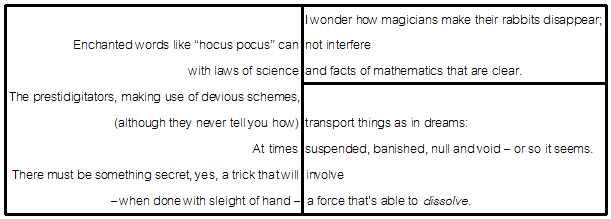
Donald E. Knuth composed this poem in honor of Martin Gardner. When the right-hand portions of the eight-line verse are interchanged, it becomes a seven-line verse. Which line disappears?
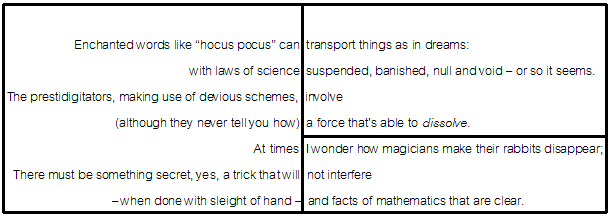
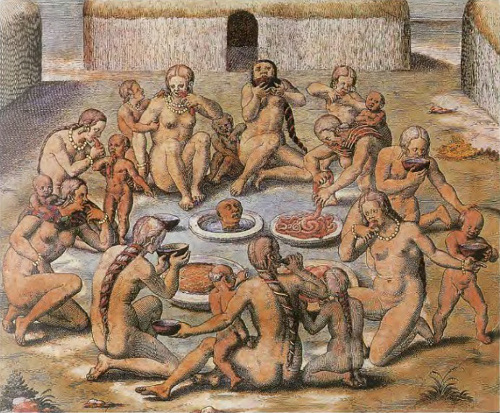
gynophagite
n. an eater of women
androphagous
adj. eating men
brephophagist
n. one who eats babies